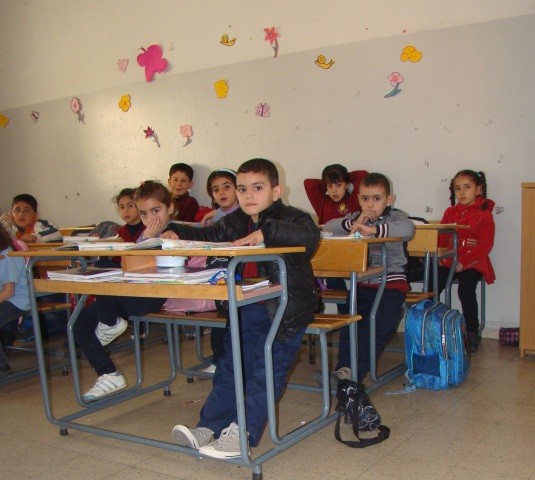
Lebanese schools are struggling to accommodate the growing number of Syrian refugee students. According to the United Nations High Commissioner for Refugees, there are more than 350,000 school-age Syrian children in Lebanon. This number imposes a great challenge to the Lebanese education sector, as schools are already overcrowded with students. The quality of education has suffered in some cases, and tensions are on the rise between Lebanese host communities and Syrian refugees.
The Saint Georges Intermediary School in Zahle in central Beqaa has enrolled 90 Syrian students since the start of the Syrian crisis. The school provided education for these students, either for free or at a reduced rate, during the 2012-2013 academic year. However, the school could not afford to do so in 2013-2014.
A total of 29 Syrian and 11 Lebanese students could not afford the fees and risked missing the academic year. Some Lebanese parents lost their jobs because of competition in the work force due to the influx of Syrian workers. After learning that fees might increase, some of these families initially transferred their children from the private Saint Georges School to a lower quality public school.
USAID’s Office of Transition Initiatives partnered with the school in 2013 to help students continue their education. With USAID support, the Saint Georges School was able to provide free books to 190 students. In addition, it provided school fees for the Syrian and Lebanese students who could not pay the fees, allowing them to complete the academic year. The support also enabled families to save an average of $300, which prevented many families from going into debt and helped others afford additional winter heating fuel.
Toni*, a father of two students, said, “I removed my kids for one week from this school until the director called me to tell me that they could provide free books and support with fees.”
“With the money saved from education expenses this year, we are now in less debt, and we can buy more fuel for heating this winter,” said another parent from Zahle.
USAID also provided stipends for five teachers, which allowed the school to redirect the stipend funds to hire a psychologist to provide support to students in need. The psychologist has been extremely valuable in helping at-risk Lebanese and Syrian students, preparing them to be more productive during class. Finally, rehabilitation of school toilets and increased access to clean water improved hygiene for the students and the broader community.
*Full name withheld for privacy reasons.







Comment
Make a general inquiry or suggest an improvement.